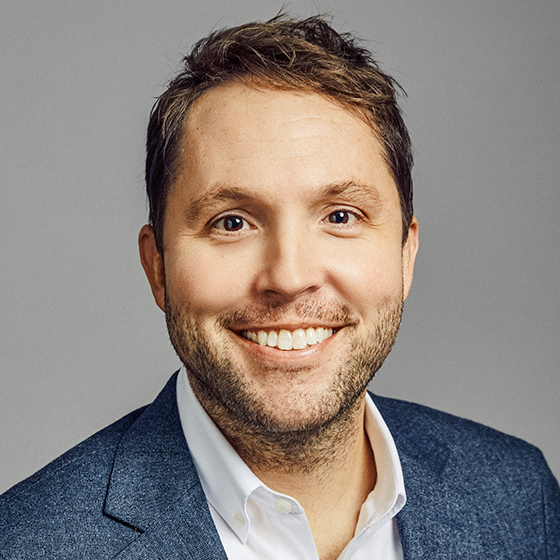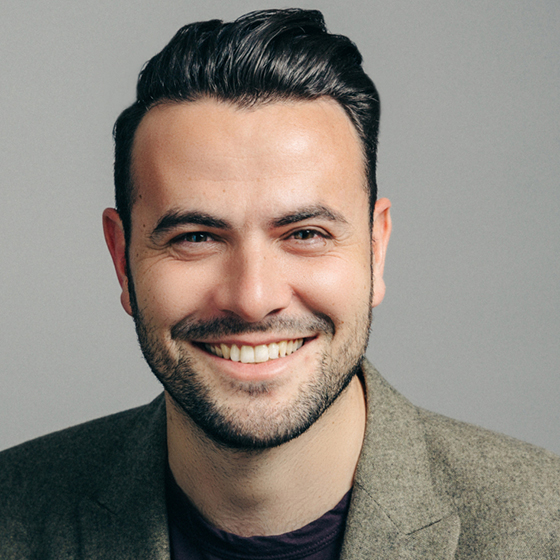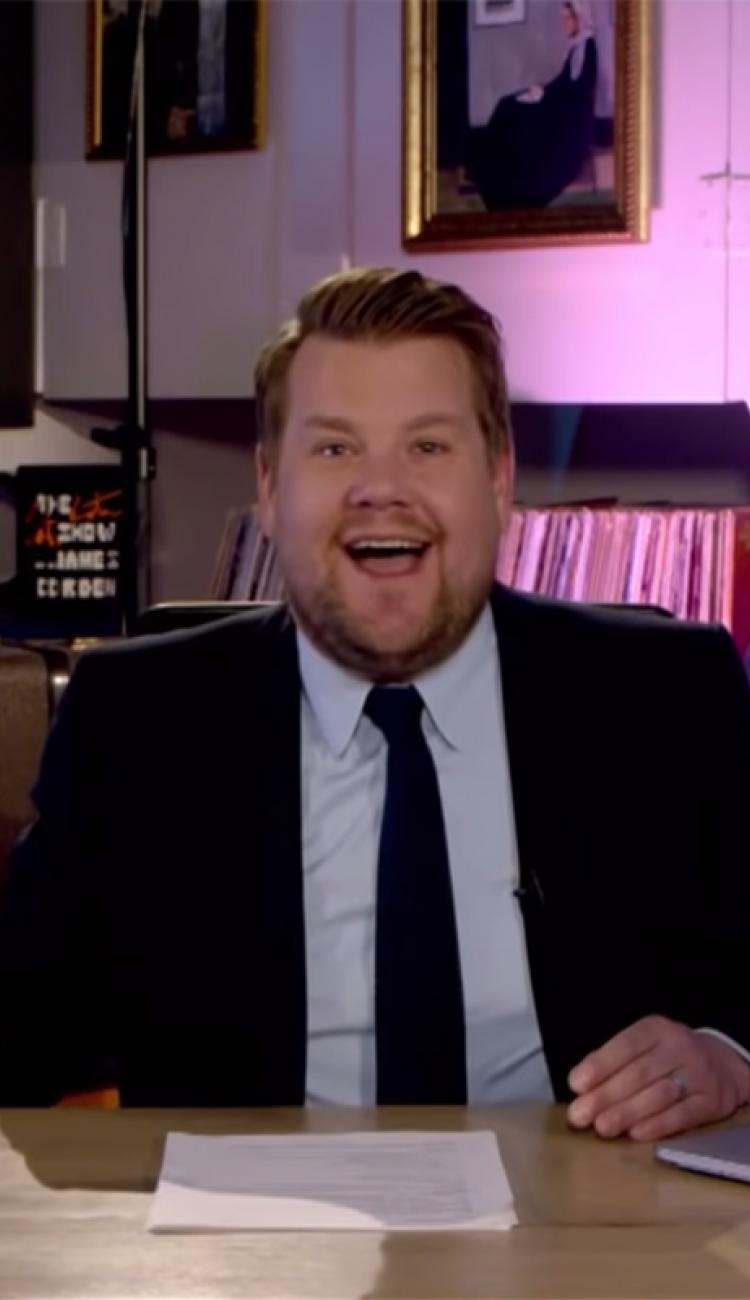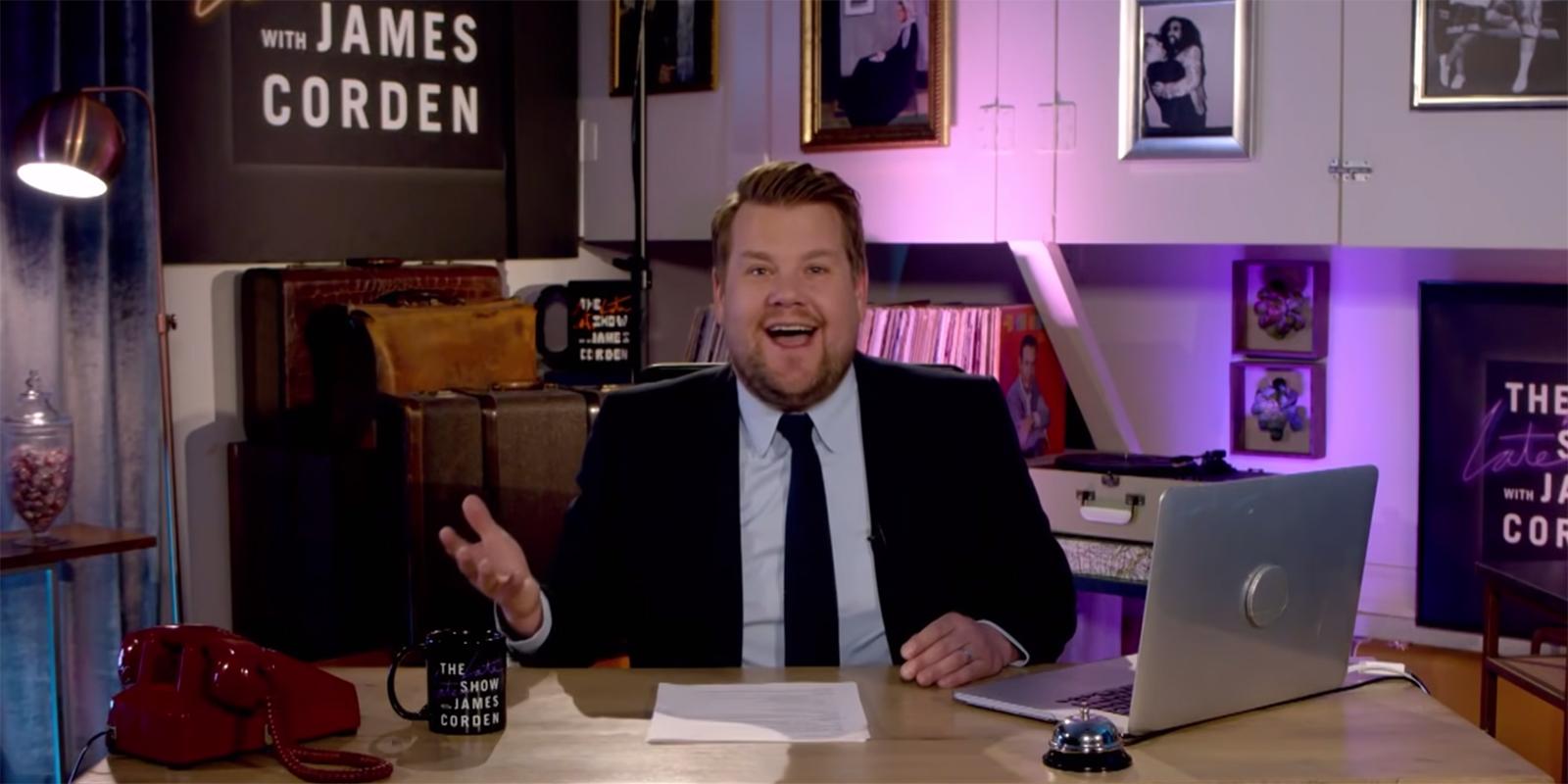Apr 10, 2020
“In the middle of the shoot, the power went out. It was very touch-and-go… if it hadn’t come back we wouldn't have been able to deliver the show."
In Making it Work, creatives and decision-makers from across ViacomCBS describe how they turned an idea into a reality.
In this installment, Rob Crabbe and Ben Winston, executive producers of The Late Late Show with James Corden, explain how they pulled off the Homefest TV special featuring at-home performances from BTS, Dua Lipa, Billie Eilish, and more. It was broadcast on CBS on March 30.
Going off the air happened incredibly fast. Ben woke up at 7 a.m. on Wednesday, March 11 with a missed call from David Stapf, the president of the studio. He said, "You should really consider, after next week, whether you will have audiences anymore."
It was a whiplash few days. We went from planning to film in an empty studio to deciding there wasn’t going to be a show at all. It was a really, really quick turnaround from all-systems-go to “what do we do now?”
We wanted to do something impactful. Our audience is young and global—The Late Late Show airs in 150 countries and we have nearly 24 million YouTube subscribers—so we realized that we’d have to get the message just right. We thought we could make a big special filled with great stars to raise awareness about staying in and promote a charitable cause. That idea became Homefest.
Every aspect of making a TV show is so much harder when you’re remote. It's easier when you can just pop over to each other's offices to talk or make creative decisions. Zoom is a pretty good system, but it's unnatural. For us, when we're doing an edit, we're usually in a soundproof room with state-of-the-art equipment. Now, it’s hard to tell whether there’s a skip in the recording or if one of us lost wi-fi for a second. It's just a laborious process.
To book the talent, it was all-hands-on-deck for a few days. We reached out to friends of the show and people we have relationships with. It helped that a lot of celebrities and musicians live in New York and L.A., so everybody was at-home, bored, and navigating their new reality. We figured that recording from home would be a good distraction for celebrities, and for us.


"We figured that recording from home would be a good distraction."
Billie Eilish was one of the first artists to say yes. Another was BTS—they’ve been on the show before and have done everything from carpool karaoke to hide-and-seek in the studio. They all, I think, live together in a complex that has a dance studio underneath it. So they were very keen.
Diana Miller, a talent executive and a producer on the show, deserves a lot of credit. She pushed us to go for a real global angle, which I think gave our show an original slant. We featured artists in the UK, Italy, Korea, and the U.S. We also ended up with a really great range, with performances that were upbeat or clever, like Dua Lipa’s. To see everybody on Zoom, FaceTime, or Houseparty, which was the app that Lipa used, reflected the circumstance of our lives and the global nature of this crisis.
As for how we did it, technically it was tricky. We delivered a rig to each artist so they could film themselves with a camera that connected to their phone. That way, we could get high quality footage and they would also be able to see James on video chat. The Late Late Show tapes at 5 p.m. and airs later that night. With Homefest, we taped everything the day before it aired. Essentially, all the elements were shot live to tape, so there was a lot of complicated coordination that had to come together, especially with the time difference across locations.
We were shooting James in his garage, which we outfitted with three cameras and lights so it would look good. He was completely alone at his desk with his laptop so he could see us and the director through Zoom. It was a strange way to shoot a television show.
Of course, things briefly went awry. In the middle of the shoot, the power went out. It wasn’t our equipment or anything—his whole street lost power as often happens in L.A. neighborhoods like Brentwood and Westwood. It was very touch-and-go at one point. We had to reschedule a bit with David Blaine, who was—luckily for us—very kind and accommodating. The outage lasted about six hours; if it hadn’t come back we wouldn't have been able to deliver the show.


"More important than what’s on TV right now, in truth, is that everybody's staying safe and healthy."
Being at home and being remote, I think you've got to be less precious about the footage that you’re releasing. But we're perfectionists, like everybody who makes TV. We want everything to look and sound great, and it's frustrating that we're not able to make content at our usual level.
But Homefest did go the extra mile in some ways, and we’ll continue to try to do that.
In retrospect, it was worth the struggle. It raised a fortune for the CDC Foundation and Feed the Children and it seemed to resonate with people and speak to them in a way that I hope our show often does. And more important than what’s on TV right now, in truth, is that everybody's staying safe and healthy.
As told to Nicole Bitette




